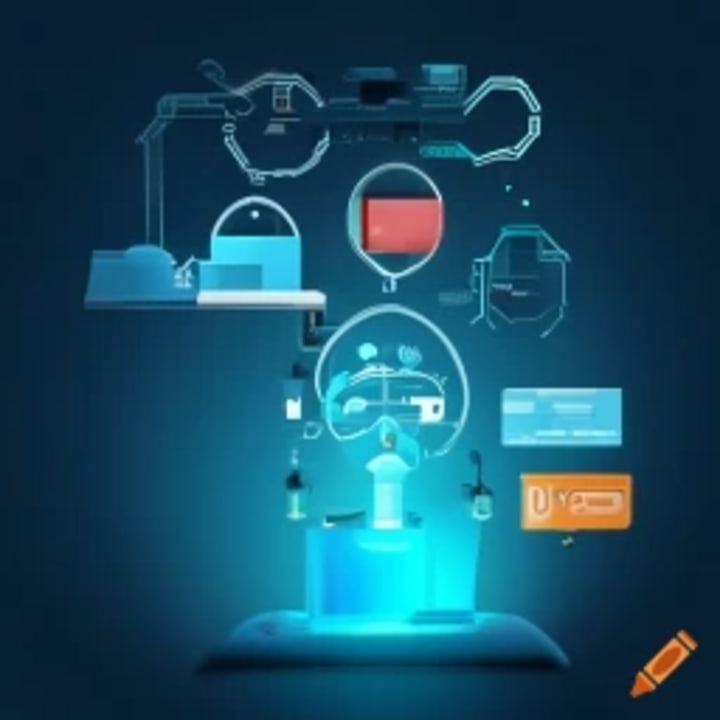E-Commerce: A Paradigm Shift and the Indispensability of Marketing Automation
Embracing the E-Commerce Revolution: The Imperative Role of Marketing Automation

Introduction:
The 21st century has witnessed a revolutionary transformation in the way businesses operate and consumers shop. E-commerce, the buying and selling of goods and services over the internet, has emerged as a dominant force in the global economy. As technological advancements continue to reshape the landscape of commerce, the significance of e-commerce becomes increasingly apparent. This article aims to delve into the reasons why e-commerce is the future and explore the essential role of marketing automation in ensuring its success.
Revolutionize Your Email Strategy - Explore the Best Automation Software!

I. The Ascendance of E-Commerce:
1.1 Global Connectivity:
The world has become more interconnected than ever before, facilitated by the proliferation of the internet and mobile devices. E-commerce platforms leverage this connectivity to transcend geographical boundaries, enabling businesses to reach customers across the globe without the constraints of traditional brick-and-mortar locations. This global reach enhances market access and opens up lucrative opportunities for businesses of all sizes.
1.2 Changing Consumer Behavior:
Consumer preferences have shifted significantly, with more people embracing online shopping due to its convenience, accessibility, and variety. The rise of digital-native generations, like millennials and Gen Z, has further accelerated this trend. These tech-savvy consumers demand seamless, personalized shopping experiences that can only be provided through e-commerce platforms.

1.3 Cost-Effectiveness:
Operating an e-commerce store is considerably more cost-effective than maintaining a physical retail presence. Traditional retail involves significant expenses like rent, utilities, and staff salaries. E-commerce, on the other hand, requires minimal overhead costs, making it a financially viable option for startups and small businesses.
II. The Case for Marketing Automation in E-Commerce:
2.1 Scalability and Efficiency:
As e-commerce businesses grow, manual marketing efforts become impractical and time-consuming. Marketing automation systems streamline repetitive tasks, such as email marketing, social media posting, and customer segmentation. By automating these processes, businesses can scale their marketing efforts efficiently, reaching a larger audience without exhausting their resources.
Revolutionize Your Email Strategy - Explore the Best Automation Software!

2.2 Personalization:
In the digital era, consumers expect personalized experiences. Marketing automation tools enable businesses to collect and analyze customer data, allowing for targeted and relevant marketing campaigns. Tailoring marketing messages to specific customer segments not only increases engagement but also fosters stronger customer relationships and boosts brand loyalty.
2.3 Enhanced Customer Journey:
The customer journey in e-commerce is multifaceted, comprising various touchpoints from initial discovery to post-purchase interactions. Marketing automation facilitates a seamless customer journey by automating follow-up emails, personalized recommendations, and order status updates. This cohesive approach enhances the overall customer experience, leading to higher satisfaction levels.

2.4 Abandoned Cart Recovery:
Cart abandonment is a common challenge for e-commerce businesses. Marketing automation tools can help combat this issue by automatically sending reminder emails or offering incentives to encourage customers to complete their purchases. Studies have shown that abandoned cart emails can significantly improve conversion rates and recover lost sales.
2.5 Behavioral Tracking and Analysis:
Understanding customer behavior is vital for e-commerce success. Marketing automation platforms enable businesses to track user interactions, preferences, and buying habits. This data-driven approach empowers businesses to make informed marketing decisions, optimize their strategies, and tailor their offerings to meet customer demands more effectively.
Revolutionize Your Email Strategy - Explore the Best Automation Software!

2.6 Omnichannel Marketing:
E-commerce is not limited to a single platform; it extends across various channels like social media, email, mobile apps, and more. Marketing automation allows businesses to implement a cohesive omnichannel marketing strategy, ensuring a consistent brand experience across all touchpoints and maximizing the chances of customer engagement and conversion.
III. The Future of E-Commerce and Marketing Automation:
3.1 Artificial Intelligence (AI) Integration:
The future of e-commerce and marketing automation lies in the integration of AI technologies. AI-powered marketing automation systems can analyze vast amounts of data, predict customer behavior, and optimize marketing campaigns in real-time. This level of sophistication will enable businesses to deliver hyper-personalized experiences, further solidifying the position of e-commerce in the market.

3.2 Voice Commerce:
The rise of voice-activated virtual assistants and smart speakers presents new opportunities for e-commerce. Marketing automation can play a pivotal role in voice commerce by enabling businesses to engage customers through voice-activated marketing messages, personalized product recommendations, and seamless voice-based transactions.
3.3 Augmented and Virtual Reality (AR/VR):
AR and VR technologies are reshaping the way consumers interact with products online. Marketing automation can leverage these immersive technologies to enhance product visualization, simulate virtual try-ons, and provide personalized shopping experiences tailored to individual preferences.
Revolutionize Your Email Strategy - Explore the Best Automation Software!

Conclusion:
E-commerce has established itself as the future of commerce, propelled by global connectivity, shifting consumer behavior, and cost-effectiveness. To thrive in this evolving landscape, businesses must harness the power of marketing automation. From scalability and efficiency to personalization and omnichannel marketing, automation empowers e-commerce enterprises to provide exceptional customer experiences, optimize marketing strategies, and stay ahead of the competition. As we look towards the future, the integration of AI, voice commerce, and AR/VR technologies will only further solidify the indispensability of marketing automation in the e-commerce ecosystem.





Comments
There are no comments for this story
Be the first to respond and start the conversation.